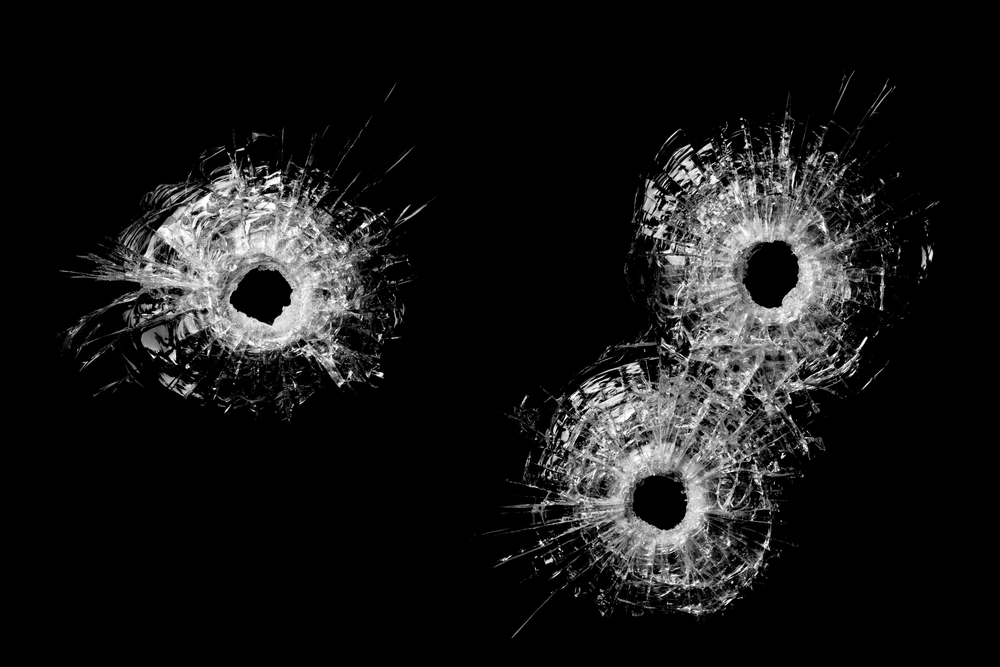
After the horrifying shooting at Sandy Hook Elementary school last week, people seem to be asking the same questions: What kind of person could open fire on innocent children? Why do such incidents keep happening? And what can we do to prevent such crimes?
We may never know what spurred the man who killed 20 children and six adults in Newtown, Conn., on Friday, and whether he could have been stopped.
But psychologists have created profiles of mass shooters, and many common themes — and even warning signs — emerge.
"In most cases, there's a long trail leading up to the actual act of violence," said Peter Langman, a psychologist in Allenton, Penn., who has studied mass shooters.
Yet despite a list of red flags, psychologists say, it is maddeningly difficult to separate the next school shooter from the millions of other disaffected students who may never go on to kill.
"There are certainly a lot of people who have a lot of things go wrong, and they're not committing mass murders," said Mary Muscari, a forensic nurse at Binghamton University in New York who has researched mass killers. "Even when you look at mental illness, most people with mental illness are not violent," Muscari told LiveScience in July after the Aurora, Colo., movie theater killings.
Profile of a shooter
Get the world’s most fascinating discoveries delivered straight to your inbox.
Many mass shootings are motivated by revenge or envy. That's why many take place at a school or a workplace where shooters felt rejected, said Tony Farrenkopf, a forensic psychologist in Portland, Ore., who has created psychological profiles of mass shooters.
In addition, killers often exhibit risk factors that are generally tied to criminality: a history of abuse or ineffective parenting, a tendency to set fires or hurt animals, a sadistic streak, and self-centeredness and a lack of compassion.
"To most of us, children are beautiful little creatures that we love," Farrenkopf told LiveScience. "So why would someone target them?"
In order to kill innocent little children, it's possible the killer lacked compassion or empathy for them, instead seeing them as symbols of something he wanted to obliterate, Langman said.
School shooters often harbor anger and paranoid delusions, have low self-esteem and hang out with an outcast group, Farrenkopf said. And there is usually a triggering event — either a lost job or a falling out with a girlfriend — that finally makes them snap, he said. [10 Facts Every Parent Should Know about Their Teen's Brain ]
They also tend to be obsessed with guns, violent video games or movies.
In retrospect, investigators uncover warning signs, such as trying to recruit a peer or writing hateful stories, Langman told LiveScience.
"In many cases, students actually come out and say exactly what they're going to do: 'I'm going to come back with a gun and kill all of you,'" Langman said.
Toxic culture
Overwhelmingly, mass shooters are men, Langman said. That's no surprise when you consider their self-professed motives, he said.
"These kids often feel very powerless. The one way they can feel like they're somebody, that they're a man, is to get a gun and kill people."
Our culture and media (such as violent movies and video games) only reinforce the notion that manhood is about attaining power, and social and sexual status. Violence is glorified as a way to get that power, he said.
"There is that cultural script that a lot of kids are very influenced by. We don't have a lot of alternative cultural scripts for males in terms of popular media," he said. [The History of Human Aggression]
Society doesn't necessarily teach constructive ways to deal with depression and disappointment, either. And we provide very little to support to people at risk before they become violent, Farrenkopf said.
Each mass shooting also holds the potential to spawn others, because other would-be shooters see stories about the crimes in the newspaper, and may want to emulate them, Farrenkopf said.
No crystal ball
Despite a fairly consistent profile, psychologists can't predict who will kill. Millions of people will feel disaffected and vengeful, and may even lack empathy, but the vast majority would never shoot defenseless, 6-year-old children, Langman said.
And if fascination with violent media and guns were predictive, the average ninth-grade boy could be considered at risk.
"It's only these kids who are really fundamentally struggling with their own identities," he said. "Those really vulnerable kids who are the ones who will take a movie or video game that 10 million other kids would watch and play and take as a guide for how to live their lives."
Even so, psychologists stress the importance of preventing these massacres before they happen. One step in that direction might be to help the kids who do feel the burden of social isolation and feelings of insignificance, regardless of whether they will ever snap.
"It's not so much to catch shooters, because we know that's very difficult, but actually to address very widespread problems that reach millions of kids," Katherine Newman, a sociologist at Johns Hopkins University, told LiveScience in July.
Follow LiveScience on Twitter @livescience. We're also on Facebook & Google+.

Tia is the editor-in-chief (premium) and was formerly managing editor and senior writer for Live Science. Her work has appeared in Scientific American, Wired.com, Science News and other outlets. She holds a master's degree in bioengineering from the University of Washington, a graduate certificate in science writing from UC Santa Cruz and a bachelor's degree in mechanical engineering from the University of Texas at Austin. Tia was part of a team at the Milwaukee Journal Sentinel that published the Empty Cradles series on preterm births, which won multiple awards, including the 2012 Casey Medal for Meritorious Journalism.
 Live Science Plus
Live Science Plus





